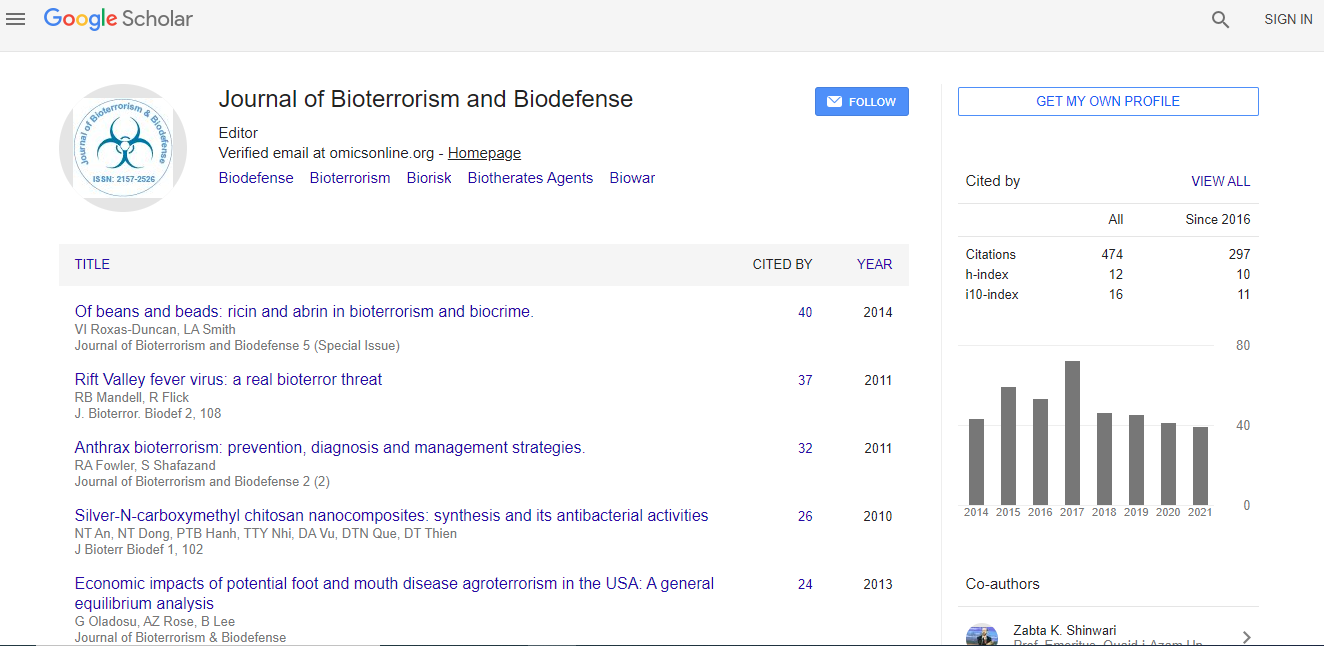Review Article
Security in a Goldfish Bowl: the NSABBs Exacerbation of the Bioterrorism Threat
Brian P. Hanley*
Research Scientist, Butterfly Sciences, USA
- *Corresponding Author:
- Brian P. Hanley
Research Scientist, Butterfly Sciences, USA
Tel: 415-518-8153
E-mail: brian.paul.hanley@gmail.com
Received January 05, 2013; Accepted February 19, 2013; Published February 25, 2013
Citation: Hanley BP (2013) Security in a Goldfish Bowl: the NSABB’s Exacerbation of the Bioterrorism Threat. J Bioterr Biodef S3: 013. doi:10.4172/2157-2526.S3-013
Copyright: © 2013 Byers RJ, et al. This is an open-access article distributed under the terms of the Creative Commons Attribution License, which permits unrestricted use, distribution, and reproduction in any medium, provided the original author and source are credited.
Abstract
If our potential adversaries are understood, publicity drawing the attention of bioterrorists to plausible bioweapons is the primary contribution the NSABB makes by censorship recommendations. Attempting censorship by attracting the entire world’s attention to information of concern is obviously counterproductive.
It is equally problematic to curb research in an attempt to prevent those outside our borders from understanding how to create bioweapons. That horse is, “Out of the barn and in the next county”. Locking the barn door is not going to change this. Proliferation of molecular biology, vaccine and other knowledge across the world has already taken place. Thus, the best course is to make sure that we understand what human bioterrorists could do as well as we understand what nature can do. To date, nature has been the worst bioterrorist, but in theory human engineering can be worse.
Medicine is biodefense. The focus needs to be on response capability and surveillance, just as in any other infectious disease control. Attempting to track, outwit or contain terrorists should be left to clandestine intelligence services that are equipped to understand and interdict them. Perhaps it is true that such capabilities in our clandestine services are poorly developed or directed. The remedy for that, though, is to work to improve matters by prodding politicians rather than operate independently in attempts at interdiction that may be counterproductive. Science, law enforcement, the military and intelligence services need to work together and understand each other’s appropriate roles.

